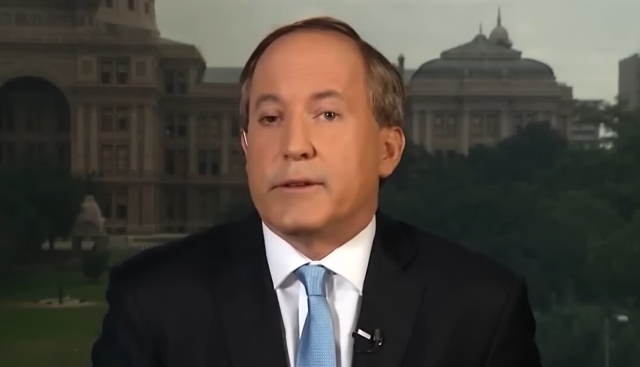Congress introduces bills to track AI chips and battle Chinese smuggling amid national security concerns
By willowt // 2025-05-12
Tweet
Share
Copy

- U.S. lawmakers are advancing two bills to combat China’s illicit acquisition of AI chips, including whistleblower incentives and real-time tracking mandates to close export control loopholes.
- The Stop Stealing Our Chips Act (co-sponsored by Sens. Rounds and Warner) offers whistleblowers 10-30% of penalties from confirmed sanctions violations, targeting smuggling networks funneling chips to China’s military.
- Rep. Foster’s bill would require AI chips to embed location-monitoring technology (similar to Google’s security protocols) and explore "kill switches" to disable unauthorized use, though implementation challenges remain.
- Biden’s 2022 export controls led to evasion tactics (e.g., third-country rerouting), with $100M+ in restricted chips smuggled. Critics argue current enforcement lacks post-export tracking, leaving gaps for illicit transfers.
- While bipartisan support emphasizes urgency, concerns persist about stifling global supply chains and corporate liability. Lawmakers aim to balance curbing China’s AI advancements with maintaining U.S. tech competitiveness.
"Stop Stealing our Chips Act" creates incentives for whistleblowers
The first bill, co-sponsored by Republican Senator Rounds and Democratic Senator Warner, establishes a whistleblower program at the Bureau of Industry and Security (BIS) to incentivize reporting of illicit chip exports. The Stop Stealing our Chips Act would offer whistleblowers 10–30% of penalties collected from export violations, provided their tips lead to confirmed sanctions. “We must do a better job preventing the flow of illegal chis into China,” said Rounds, citing reports of $100 million smuggling operations funneling chips to Chinese military entities. The legislation also requires BIS to create a secure reporting platform and guarantees confidentiality for whistleblowers. “This is about shutting down the networks that enable our adversaries to steal our technology,” said Warner. The bill mirrors a growing urgency among lawmakers after reports that Chinese networks have acquired tens of millions of dollars in restricted NVIDIA chips. These chips, critical for developing AI systems, were used to build DeepSeek, a Chinese supercomputer that rivalred U.S.-controlled tools like OpenAI, according to analysts. Singapore recently charged three Chinese nationals accused of falsifying server orders to launder NVIDIA chips into restricted markets.Tracking chips in real time: Foster’s bold legislative push
Parallel legislation proposed by Representative Foster, a former physicist, seeks to leverage existing semiconductor technology to monitor AI chips post-sale. The draft bill would direct the Department of Commerce to mandate on-chip tracking systems akin to Google’s data-center security protocols. Foster said the technology—using signal latency to pinpoint a chip’s geographic location—is “already in use but not widely exploited for export control.” “China isn’t just buying chips. They’re weaponizing our innovations,” Foster told Reuters. The legislation also calls for “kill switches” to disable unlicensed chips, though experts admit that feature remains technologically complex. The proposal has drawn support from both parties. Chair of the China Select Committee John Moolenaar (R-MI) praised the plan, stating, “Location tracking is common sense…we need to stop chasing bad actors with empty hands.” However, chipmakers like NVIDIA declined to comment on the potential mandate, and opponents argue the regulations could stifle global tech supply chains.Historic smuggling surge drives bipartisan action
The bills respond to a sharp escalation in chip theft since Biden’s 2022 export controls on AI hardware. While the rules restricted direct sales to Chinese military-linked firms, smugglers bypassed enforcement by routing chips through third countries or falsifying paperwork. Reports indicate 8 networks alone have moved over $100 million in restricted semiconductors. “BIS has no way to track chips once they leave U.S. soil,” said Tim Fist, a tech policy expert, noting location data could help prioritize investigations. “Right now, it’s like hunting ghosts.” President Trump’s recent rollback of Biden-era export rules—which temporarily eased restrictions to bolster U.S. competitiveness—has further complicated the issue. While the change reflects industry lobbying to avoid stifling innovation, it has raised alarms among national security hawks.Tensions rise between security and innovation
Lawmakers face a delicate balancing act: curbing foreign access to strategic tech without stifling domestic industries reliant on global supply chains. Cuong Nguyen, a computer engineer at MIT, said embedding tracking systems could set a precedent for similar mandates on other sensitive hardware, raising concerns about corporate liability and privacy. Yet public and private sectors increasingly agree on urgency. “We can’t out-innovate China blindfolded,” said Rep. Raja Krishnamoorthi (D-IL). “Tracking chips is non-negotiable.” As the Senate gears up for a vote on Rounds-Warner’s bill, Foster’s draft has yet to gain formal cosponsors. But with bipartisan momentum and fears of China’s AI arms race accelerating, both proposals aim to redefine how the U.S. guards its technological edge.Tech governance at crossroads: Balancing national security and global innovation
In the words of Sen. Cotton, the legislation presents a choice: “Expand access to tech without compromising security, or risk ceding dominance to adversaries.” In closing, the proposed bills underscore a pivotal moment in global tech governance. With China projected to outpace the U.S. in AI investment by 2026, these measures signal a shift toward proactive defense over equivocation—a strategy that could shape the 21st-century tech landscape. As Foster put it, the question is no longer theoretical: “It’s about whether we act before the damage is done.” Sources for this article include: Reuters.com Rounds.Senate.gov EconomicTimes.IndiaTimes.com NewElectronics.co.ukTweet
Share
Copy
Tagged Under:
glitch China national security AI whistleblower computer chips conspiracy big government globalism deception smuggling invention Big Tech future tech supply chain weaponizing innovation
You Might Also Like
By Lance D Johnson // Share
Health Ranger Report: Cory Endrulat explains why humanity must ABOLISH modern slavery to survive
By Kevin Hughes // Share
China’s copper stockpile surge sparks fears of global supply crisis amid trade tensions
By Willow Tohi // Share
Health Ranger Report: Christopher Bjerknes challenges conventional narratives about world history
By Kevin Hughes // Share
U.S. manufacturers see surge in orders as tariffs reshape supply chains
By Laura Harris // Share
USDA cracks down on SNAP benefit fraud in nationwide operation
By Laura Harris // Share
Recent News
Health Ranger Report: Cory Endrulat explains why humanity must ABOLISH modern slavery to survive
By kevinhughes // Share








